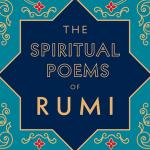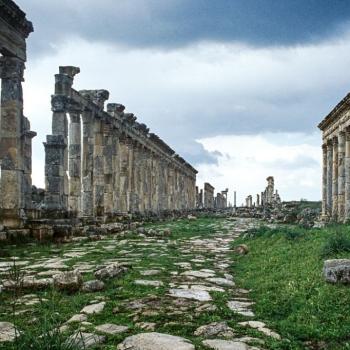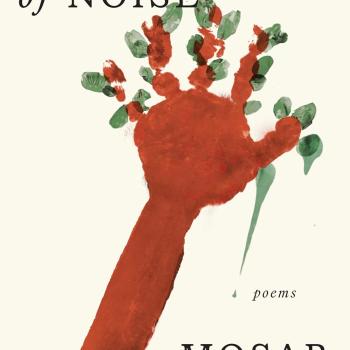I’ve been mentioning this title over and over and it is even part of my column’s name, but what is a sha’ir? What does it mean to be one? What was the role implied in the title? While the origin of the name is unknown, according to Warner et al (1917), the function is crystal clear, and I see it as an important role to play in the modern world.

The short answer
Kuiper (2010, pp: 58-59) gives a very good explanation:
The poet (caller sha’ir, a wizard endowed with magic powers) was thought to be inspired by a spirit (jinn, shaytan). The poet defended the honour of his tribe and perpetuated its deeds. Religious expression was rare in pre-Islamic poetry. In the main it reflects the sense of fatalism that was probably needed if the harsh circumstances of Bedouin life in the desert were to be endured.
This would be the short, simple answer, but I see more here than meets the eye.
First of all, I want to clarify this title is only in masculine form, I would propose the title “sha’ira” as the feminine form, but so far I haven’t found any mention of a “female sha’ir” or a “female poet” in the pre-Islamic world with any similarity, possible due to it being a patriarchal society. The title “naditum” is the closest I could find, but it is still different. It translates as priestesses or servants of the Gods and they tended to be part of the elite, often from royal families in Mesopotamia. Ahmed (1992, pp. 15) explains that:
Women (…) became naditum by being dedicated to the gods in childhood by their fathers. They not only owned property but also had advantages over other women in that they could inherit property “like a son,” their property returning to their patriarchal family on their death. They engaged in business, leased field, and house, bought slaves, entered into contracts, gave loans, and so on.
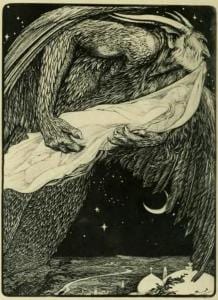
About jinn and demons
Although the term Shaitan, or Shaytan, as spelled by Kuiper, was present in the pre-Islamic, it was only used by poets who were in contact with Jews and Christians (El-Zein, 1995). I see this just as a sign of syncretism, perhaps as a way to recognize that they are not perfect and can be either good or evil, just like humans.
However, and as I said before, since their lifespan is longer than a human’s, jinn are regarded as assistants of soothsayers, too, who reveal information from the past and present; ergo, they help with divination. Therefore, a sha’ir was not only responsible of protecting the honor of his tribe and inspiring them in battles, but also had to serve as an oracle or a soothsayer, “a person who predicts the future by magical, intuitive, or more rational means”, as defined by Merriam-Webster.
This reminds me a lot about the power of words and how they can affect the world around us. Also, I’ve always said that rhymes have power and make it easier to remember the words. This also ties to the use of sihr and ruqya, black magic and charms respectively, in the Arabic world. While sihr is considered a dangerous practice that hurts and causes all kinds of evil, ruqya commands jinns and demons to abandon their mischiefs. (Zadeh, 2014).
Abu Unays (2020), a Fitrah Centre writer, explains that:
The Arabic word ruqya (رُقْيَة) linguistically refers to a verbal incantation or chant, uttered or written, to remove unwanted afflictions like possession and sickness. The plural of ruqya is ruqa (رُقَى).
In normal usage, the word is used to refer to the process of expelling jinn from possessed persons, objects and places, and curing evil eye and non-spiritual illnesses and injuries with religious statements, practices and artefacts where medical treatment fails.
The practitioner of ruqya is called Raqi (رَاقِي), the plural of which is Ruqat (رُقَاة).
Considering the nature of the jinn, that they can be good or evil, I see it as a reflection of what how the sha’ir was expected to do for his tribe. They would also need to be a protector, defender, healer, priest, but with abilities to enabled him to attack and hurt his tribe’s enemies. He wouldn’t sugar-coat his magic, and I’m pretty sure they would be both highly respected and feared, but also targeted as important objectives during wars. It would be an active and passive role depending on the tribe’s needs.
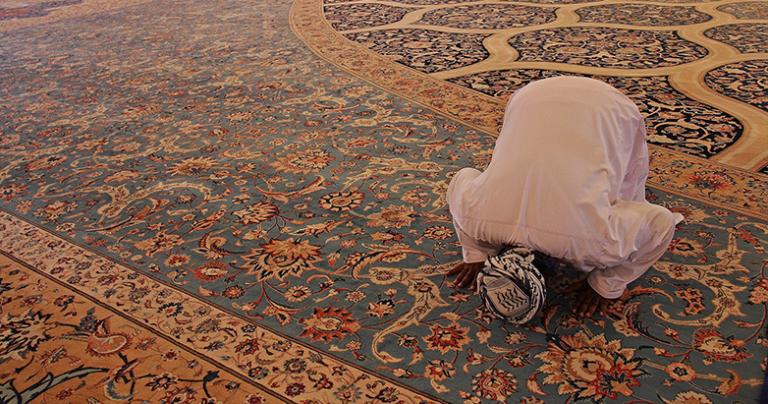
A Modern Day Sha’ir?
If the sha’ir was an advisor, healer, priest, protector, soothsayer, warrior, wise man, witch, and intermediary between supernatural beings and his tribe, the role of one in the modern world would be a bit different. While poets also taught rawis (reciters) to learn their poems by heart and to recite them to others (Allen, 2005), I strongly believe the roles of teacher and guide should be added, and make it possible for a woman to become a sha’ira. I’ll take this to the next level: non-binary Arabs should also be able to be sha’irx (I’m not sure if this would be a correct term, though).
Why specifically teacher and guide? Because there is a lot of prejudice toward Arabs. I even heard about a Muslim man who was arrested when someone saw him praying in his office and thought he was a terrorist; he is now terrified of praying, a fundamental part of his religion. Masci (2019) gives good details about this matter:
While ideas about religious liberty and tolerance are central to America’s founding and national story, different religious groups – including Catholics, Jews and Mormons – have suffered discrimination in the United States at various points in history. Today, Americans say some religious groups continue to be discriminated against and disadvantaged, according to an analysis of recent Pew Research Center surveys.
Most American adults (82%) say Muslims are subject to at least some discrimination in the U.S. today, according to a Pew Research Center survey conducted in March – including a majority (56%) who say Muslims are discriminated against a lot.
Among U.S. Muslims themselves, many say they have experienced specific instances of discrimination, including being treated with suspicion, singled out by airport security or called offensive names, according to a 2017 survey of Muslim Americans.
A Modern Day Sha’ir/a/x should be able to educate others about Arab culture, understand it, be able to fight prejudice, bigotry, be there for others and become an agent of change. In short, this needs to be a spiritual, magical, and social role.
I have been an ignorant of my culture, my roots and my history for a long time. People made a lot of fun about me, my family, my culture, my heritage, my roots, and so on. However, I’m changing this within the limits of my possibilities, and I’m proud of what I’ve acomplished so far. From reading and writing about my beliefs to learning about my family’s faith and the history of my country, I’m already the one that can answer some of the questions my cousins have about our heritage. This is just the beginning.
References:
- Abu Unays, 07-07-2020. Ruqya (Part 1): Definition, Validity & Conditions. [online] Fitrah Centre. Accessed 7 November 2020.
- Ahmed, L., 1992. Women and Gender in Islam: Historical Roots of a Modern Debate. New Haven and London: Yale University Press.
- Allen, R., 2005. The Arabic Literary Heritage: The Development of its Genres and Criticism. Cambridge, UK: Cambridge University Press.
- El-Zein, A., 1995. The Evolution Of The Concept Of The Jinn From Pre-Islam To Islam. Ph.D. Georgetown, WA: Georgetown University.
- Kuiper, K., 2010. Islamic Art, Literature, And Culture. Illustrated Edition. New York, NY: Rosen Education Service.
- Masci, D., 2019. Many Americans See Religious Discrimination In U.S. – Especially Against Muslims. [online] Pew Research Center. Accessed 7 November 2020.
- Zadeh, T., 2014. Commanding Demons and Jinn: The Sorcerer in Early Islamic Thought. In: A. Korangy and D. Sheffield, ed., No Tapping around Philology: A Festschrift in Honor of Wheeler McIntosh Thackston Jr.’s 70th Birthday, 1st ed. [online] Wiesbaden: Harrassowitz Verlag, pp. 131–160. Accessed 7 November 2020.



